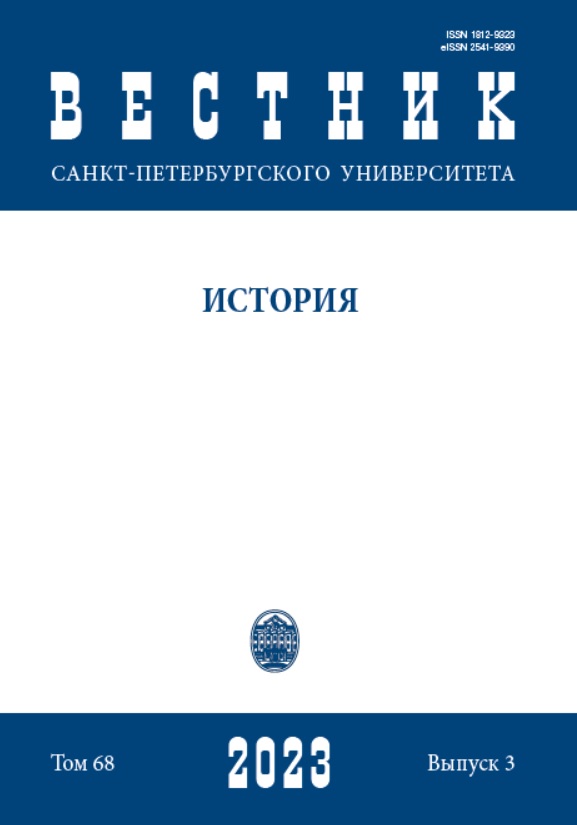The Problem of Elections to the Crimean Regional Sejm during the Civil War
DOI:
https://doi.org/10.21638/spbu02.2023.305Abstract
The article is devoted to the failed elections to the Crimean Regional Sejm — the regional parliament of Crimea, which was to have been elected on April 6–8, 1919. The paper analyzes the course of the campaign, the features of the electoral law, and lists candidates from various political parties and national groups. The elections to the Sejm were a result of the compromise between the Constitutional Democrats and the Socialist Revolutionaries during the formation of the second Crimean regional government in the autumn of 1918. By the beginning of 1919, when the Red Army had approached the borders of Crimea, it became clear that it would be difficult to hold elections in the existing conditions. The issue of elections became one of the main factors of internal political instability in Crimea and caused the conflict between the liberal government, the socialist opposition, and the leadership of the White Movement. The election campaign was sluggish; absenteeism was predominant among most of the electorate (with the exception of Crimean Tatars), which was fueled by underground Bolshevik organizations actively campaigning for a boycott of the vote. Both the Constitutional Democrats, the Social Revolutionaries, and the Mensheviks understood all the risks associated with holding the elections under martial law, but they did not dare cancel them and deviate from democratic principles, although it was quite clear that the workers’ and peasants’ masses of Crimea did not need any Sejm. The vote was postponed (and actually canceled) only on April 1, 1919, after the Soviet military units reached Perekop.
Keywords:
Crimean Regional Sejm, Crimean Regional Government, elections, Civil War, Volunteer Army, Constitutional Democrats, Social Revolutionaries, Mensheviks, Bolsheviks, Milli Firqa
Downloads
References
Downloads
Published
How to Cite
Issue
Section
License
Articles of "Vestnik of Saint Petersburg University. History" are open access distributed under the terms of the License Agreement with Saint Petersburg State University, which permits to the authors unrestricted distribution and self-archiving free of charge.





